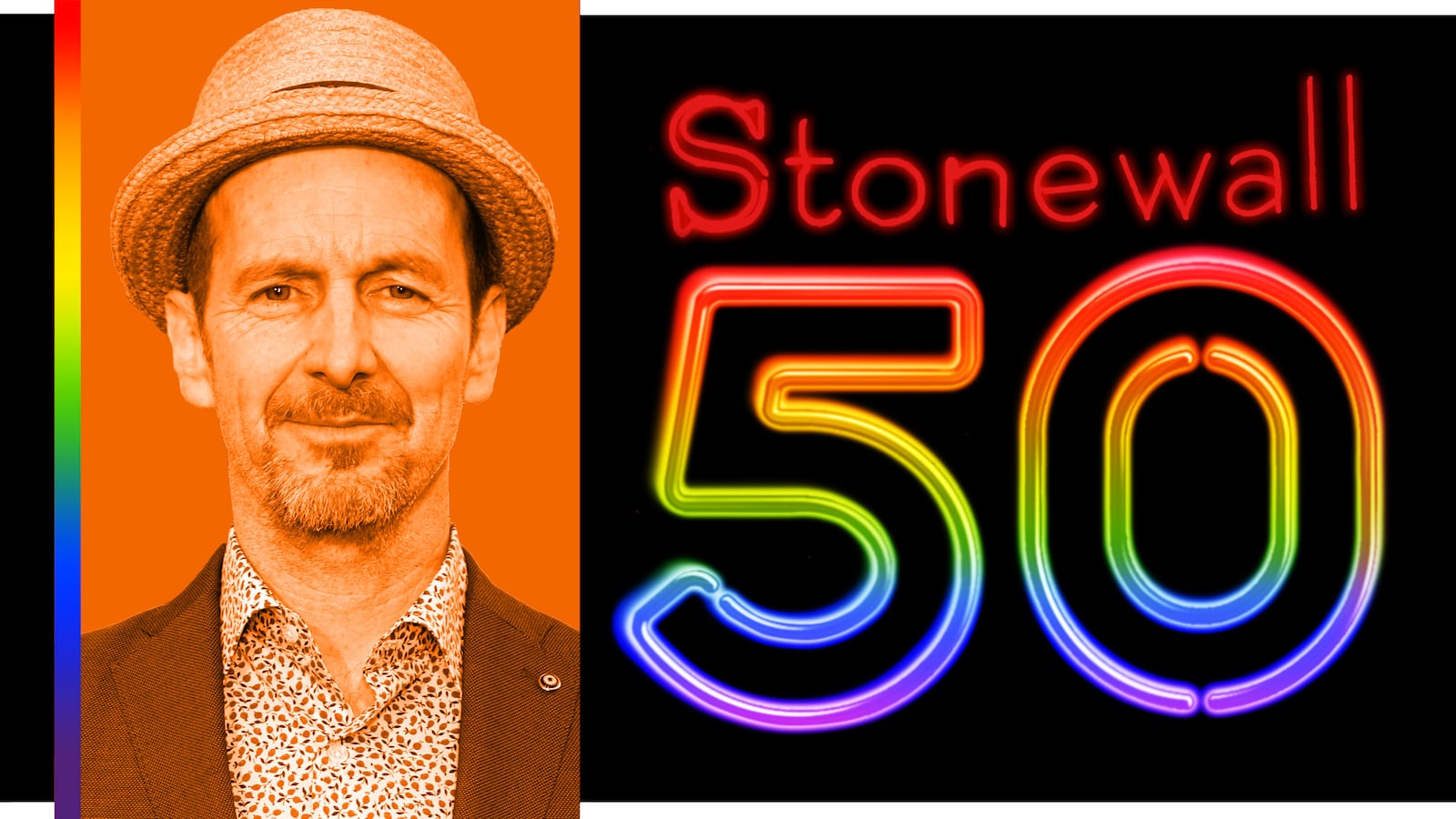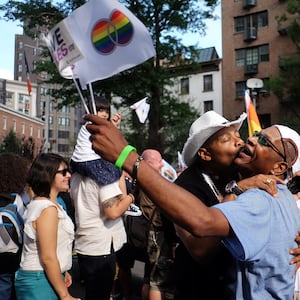In this special series, LGBT celebrities and public figures talk to Tim Teeman about the Stonewall Riots and their legacy—see more here.
Denis O’Hare is an actor (Take Me Out, True Blood, American Horror Story).
When/how did you first hear about the Stonewall Riots, and what did you make of it?
I can’t honestly remember when I first heard of the Stonewall Riots—they seemed to have always been in my consciousness and in my DNA as a gay man. I first really visited NYC in 1982 and I certainly knew of them by then and visited Stonewall Inn in 1986 or 1987 with my then-boyfriend, Carlos Roman. It was sort of a pilgrimage.
What is their significance for you?
For me, the significance of the Stonewall Riots was twofold. First, that you don’t get anywhere just because it is the right thing to do—you have to demand justice and equality, it’s not given freely; and second, it is usually those with the least power and the most to lose who do the fighting. Americans today don’t really have the habit of street fighting. We prefer to lob insults on Twitter. There is no substitute for putting your body on the line.
How far have we LGBT people come since 1969?
We have not come far enough. We are still allowing Bible-based bigotry to oppress us. It amazes me that for a country founded on the principle of liberty and justice for all, and freedom of and from religion, that we are still allowing a perversion of Christianity to dominate the conversation and our lawmaking.
From the nullification of women’s rights to the ongoing legal discrimination that people of color still experience to the bias against LGBTQ people, we have not made enough progress and I fear that we are going backwards. The current population of the Supreme Court does not inspire any hope in me.
What would you like to see, LGBT-wise, in the next 50 years?
The LGBTQ community will always be riven by tensions—we are too broad and diverse to only have one goal or one voice or one hope. My hope is that we can continue to be unified as we fight to be truly equal.


